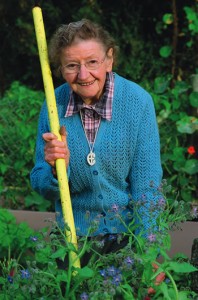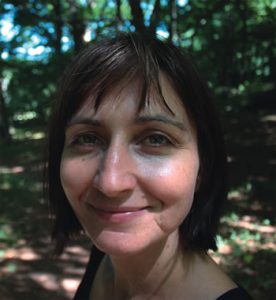Gardening with Soul: a documentary about Sister Loyola Galvin D.O.L.C
...should you find yourself wanting your faith in humanity buoyed up a little, may I direct you to ‘Gardening with Soul’, a lovely, gentle study of a year in the life of Sister Loyola, the 90-year-old chief gardener of Wellington’s Home of Compassion. You will not encounter a more energetic person on film this year: a generational icon of pragmatic, cheerful, can-do Kiwi virtues.
David Larsen - The Listener
No matter what or how you conceive of God or the power of nature, this film is a call to open your awareness of the power of compassion in sustaining a positive outlook in all stages of life and especially in those final twilight years. Take your elderly neighbours, get a group from your street to go and be warned, it may be life changing.
Anne-Marie Coury - President, Grey Power, Auckland
A ‘must’ see film.
Father Barry Scannell sm, St Mary of the Angels, Wellington
The journey of the film ‘Gardening with Soul’ began several years ago when I heard an interview with Sister Loyola Galvin on National Radio following her 2008 ‘Gardener of the Year’ win. She was immediately engaging as a person and seemed to me to embody that wonderful old wisdom held by my grandparents’ generation, wisdom that would soon be lost if not preserved properly. So I arranged to meet Sister Loyola and after a series of conversations was inspired to explore the idea of writing a book about her. But before I got too far along this track, I was sidetracked by a ‘small’ film project that turned into a much larger one (as they tend to do).
Following a seasonal structure, I set out to film with Sister Loyola over a year. While mapping out her story with this metaphor in mind I also kept my options open, allowing room for things to grow and evolve, and just capturing what happened in her daily life. There is a rhythm to the garden, through the seasons and also through days. There is a patience too, a sense of time and change. The shoot also required patience, on both our parts, and this long-term approach to filming paid off in the genuine revelation of ageing and also in the evolving intimacy between Sister Loyola and me.
As one of the growing number of New Zealanders who describe themselves as having ‘no religion’, I was interested in how a person approaching the end of her life, who had spent much more time than most thinking about God and faith, would articulate her thoughts on the subject. I was interested in how someone so open-minded, well read and intelligent would interpret ideas and beliefs about which I was somewhat sceptical. I was also interested in how a strong woman felt about the institution that is the Catholic Church, given its male dominated power structures and its ongoing scandals and cover-ups. 
Over the course of many conversations, I came to understand much more about the nature of faith, Sister Loyola’s motivations and choices.
Part of Sister Loyola’s charm is her commitment to the practical, the down to earth and the way she effortlessly connects the sacred and the profane, linking her learnings from the garden to her spiritual life. Her deep compassion is expressed in the way she deals with people and with plants.
Alongside the interviews, watching Sister Loyola interact with those around her – her helper, David; members of the community garden; visitors to her own plot; the other sisters -- brings her way of being to life.
Through the challenges of living a community life and the issues of reconciliation within the Catholic Church, and her own personal challenges, Sister Loyola’s strength comes from the message of compassion, passed down to the sisters from Mother Aubert, who founded the order in the 1860s. Mother Aubert has a subtle but continual presence through the film and may soon become New Zealand’s first canonised saint.
Sister Loyola turned ninety during the course of the filming, and it was a rare privilege to hear the perspective of someone of that age. Over the course of her life she has observed, and been a part of, massive social change. These changes are reflected in the role of the order and its current devolution (or evolution).
For Sister Loyola personally, her 90th year was a time of reflection, particularly on what she valued most as she looked back on her life. It was also a time when the reality of death came closer and, even for someone with such a strong faith, questions remain about what lies beyond. As always, her thoughts returned to the cycle of the garden.
I feel very lucky to have spent the time I did with Sister Loyola and I hope that the film we have made will help to share some of her humour, insights and inspiration to a wide audience.
The film was the surprise hit of the NZ International Film Festival this year with sell-out screenings in Auckland, Wellington and Christchurch.
It was released nationally in theatres on 12 September.

 Entries(RSS)
Entries(RSS)